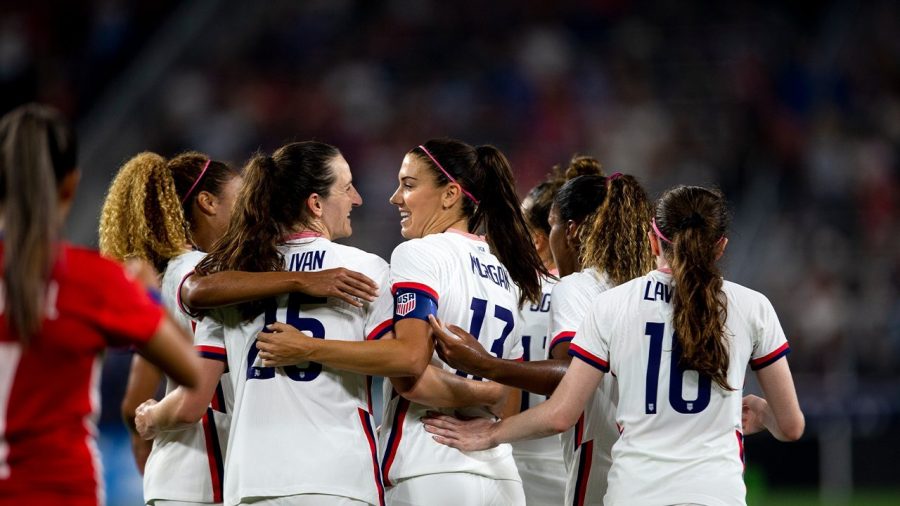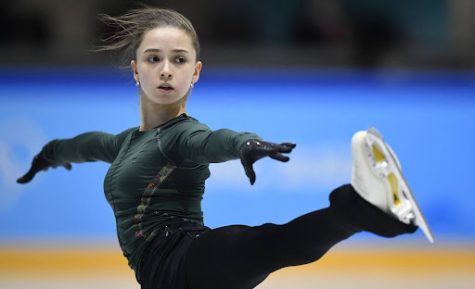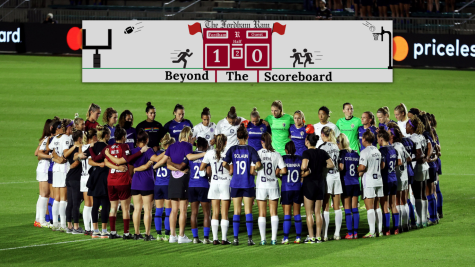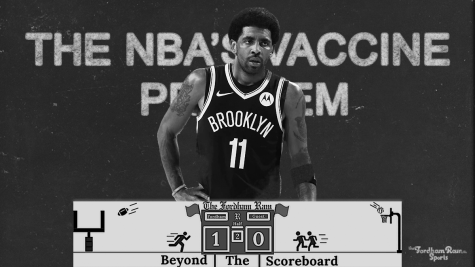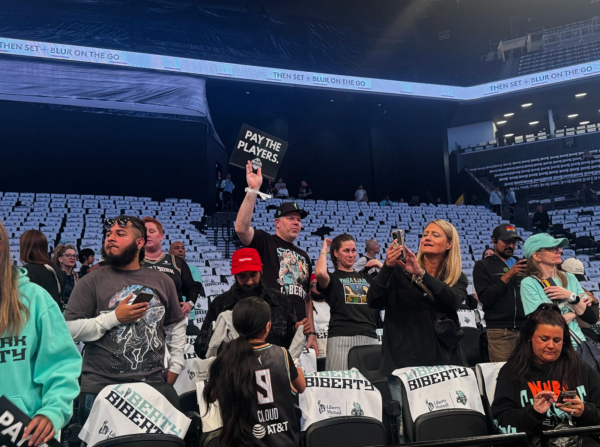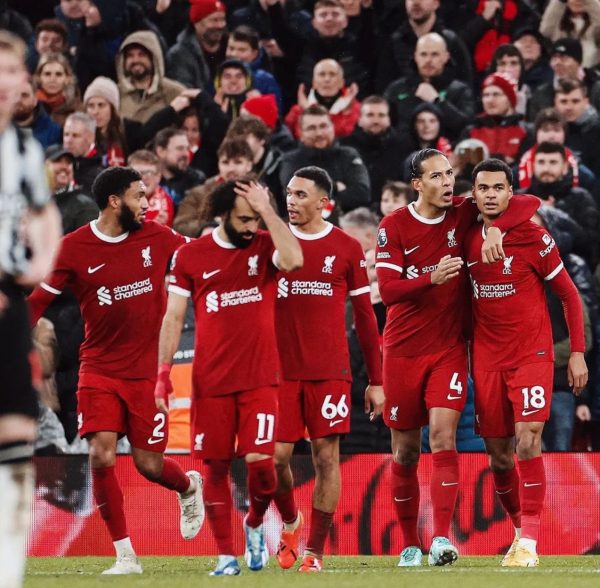Beyond the Scoreboard: The USWNT’s Uphill Battle For Equal Pay
The fight for equal pay continues for the United States Women’s Soccer National Team. This past week, a new contract proposal for both the men’s and women’s teams made headlines. In the new collective bargaining agreement, the U.S. Soccer Federation proposed a shared revenue and to begin talks of equalizing the prize pool money in the World Cup. Currently, the USWNT’s labor agreement is set to expire at the end of this year.
The USSF released a statement addressing the proposal saying, “This proposal will ensure that USWNT and USMNT players remain among the highest-paid senior national team players in the world while providing a revenue-sharing structure that would allow all parties to begin anew and share collectively in the opportunity that combined investment in the future of U.S. Soccer will deliver over the course of a new CBA.”
For the upcoming 2022 Men’s World Cup, the expected prize pool comes out to about $440 million, compared to the 2023 Women’s World Cup at $60 million. Under this new CBA proposal, both the men and women would be receiving the same pay contracts. However, that does not include the World Cup and the prize pool that is expected. Rather, the CBA proposal would focus on pregnancy and maternity leave and salaries for national club teams, as well as uniting the two labor unions that represent the USMNT and USWNT.
The respective labor unions in previous years were provided with individual bargaining agreements, in which discrepancies in pay sparked a lawsuit in 2019. The solution proposed by the USSF is to provide a single CBA to both labor unions in hopes to avoid complications.
The USWNT Players Union responded on Twitter, calling the new CBA proposal, “a PR stunt.” USWNT player Alex Morgan also spoke at a press conference later that day addressing the proposal, “… we need to look line by line at what they’re actually providing, because if you have equal but it’s not even what we got before, or to the value that we are, then we still consider that to be not good enough.”
The USSF then responded, saying the offer was made in “good faith” and criticizing the documentary released back in June 2021 titled “LFG.” The documentary followed members of the USWNT in their ongoing legal battles and fight for equal pay.
For reference, in the 2018 Men’s World Cup, the USMNT failed to secure a qualifying spot, and the victors, France, took home $38 million. For the 2019 Women’s World Cup, the USWNT took home the title and $4 million. Later that year, 28 members of the team went on to file a lawsuit against the USSF for unequal pay and gender discrimination. The women had their case thrown out back in May 2020 by U.S. District Judge R. Gary Klausner since they dismissed a pay-to-play structure that would more equalize them to the men. The USWNT has since appealed to the Court of Appeals and is awaiting a decision
Throughout the past few years, the USWNT’s dominance has become evident on a major scale. It’s also clear that four World Cup titles and four Olympic gold medals are not enough reason to give the woman a pay raise in the eyes of the USSF. While critics of the USWNT may call them greedy or ridiculous for constantly wanting more money, it is completely unfair how hard they have had to fight for the money they so clearly deserve. In this current mentality and through the past bargaining agreements the USWNT has had with the USSF, the women are expected to win just to get a fraction of the cost the men would get if they lost.
Even with this new proposal, the details are a little unclear as the full terms of the CBA have yet to be revealed. The massive uncertainty revolving around the World Cup pay and how equal it would be for the USWNT is crystal clear. While the USSF has agreed to begin talks to improve it, how long those negotiations will take is anyone’s guess.
As of now, both sides enter a stalemate, and with the upcoming 2022 Men’s World Cup and 2023 Women’s World Cup, a decision must be made soon. Regardless, the women still plan to continue their fight. “We will continue to work with U.S. Soccer moving forward, looking towards equal and fair payment and treatment,” said Morgan.

Maddie Bimonte is a senior from Raleigh, N. C. majoring in journalism and minoring in political science. She first joined the Ram writing for the sports...



































































































































































































